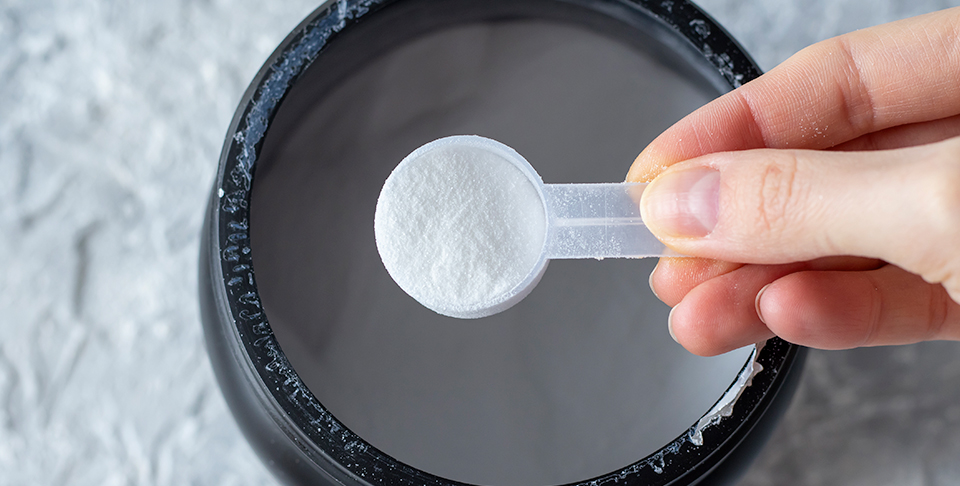Quick Summary
- Taurine, a key amino acid, is integral to our well-being, impacting cardiovascular health, cognitive function, & exercise efficacy.
- Differing from most amino acids, Taurine doesn't contribute to protein synthesis, yet it is a "conditionally essential" amino acid requiring supplementary intake.
- Among Taurine's diverse roles are heartbeat regulation, cell membrane maintenance, & supporting central nervous system & eye functions.
- Studies highlight Taurine's significance in cardiovascular health due to its ability to modulate blood pressure & curtail cholesterol.
- With its beneficial influence on brain health, Taurine promotes nerve cell growth, & augments mental performance & mood.
- Athletes can benefit from Taurine supplementation, which has been associated with superior muscle function, diminished muscle damage, improved endurance & overall performance.
- Taurine's natural sources encompass foods derived from animals such as meat, fish, & dairy. However, the scarcity of Taurine in plant-based sources makes it a necessary supplement for those following vegan or vegetarian diets.
- Taurine supplements, like Elemental Nutrition L-Taurine & Gen-Tec L-Taurine, have gained favour for their vegan-friendly properties, absence of artificial components, high bioavailability, & gluten-free nature.
- The ideal timing for Taurine supplementation hinges on individual needs & goals, ranging from morning intake for an energy surge, pre-workout consumption for a performance boost, or evening dosage for enhanced sleep quality.
- Taurine touts an impressive safety record, with research suggesting its general safety.
- Potential side effects, such as nausea, headache, and dizziness, are uncommon & typically associated with overconsumption.
- To sum up, the role of Taurine in human health is paramount, & its supplements offer a viable route to ensure adequate Taurine levels, especially for athletes & those adhering to specific dietary restrictions.
Introduction
As a sulphur-containing amino acid, Taurine stands as a crucial component in our bodies. This potent compound exerts a wide range of physiological functions, from maintaining cardiovascular health to enhancing cognitive function. This article aims to provide an extensive understanding of Taurine, its benefits, sources, consumption safety, & its unique impact on exercise performance.
The Science Behind Taurine
What is Taurine?
Taurine is a sulphur-containing amino acid. However, unlike most amino acids, it isn't used to build proteins. Instead, Taurine is classified as a "conditionally essential" amino acid - while the body can produce it, external sources are necessary to meet our total body needs.
Biological Role of Taurine
Taurine performs a multitude of functions within the human body. It helps regulate heartbeat, maintain cell membranes, & support the function of the central nervous system & eyes.
Health Benefits of Taurine
Cardiac Health & Taurine
Scientific research supports that Taurine plays a key role in cardiovascular health. It can regulate blood pressure & reduce cholesterol, thereby potentially decreasing the risk of heart disease.
Taurine and Brain Function
Taurine also impacts brain health. It supports the growth of nerve cells & boosts brain function, which can lead to improvements in mental performance & mood.
Taurine's Impact on Exercise Performance
A topic gaining increasing interest is Taurine's influence on physical performance & recovery. Taurine supplementation has been linked to improved muscle function & reduced muscle damage in athletes. Furthermore, Taurine aids in fat metabolism during exercise, which can enhance endurance & overall performance.
Other Health Benefits of Taurine
Apart from these, Taurine can improve eyesight, control diabetes, & contribute to the overall well-being of individuals.
Dietary Sources of Taurine
Natural Sources of Taurine
Taurine is naturally found in various animal-derived foods like meat, fish, & dairy. It's less prevalent in plant-based sources, making it an essential supplement for those following a vegan or vegetarian diet.
Taurine Supplements
With the evolving fitness landscape & increased focus on dietary optimisation, Taurine supplements have gained popularity. They serve as a practical way to ensure adequate Taurine intake, especially for athletes, fitness enthusiasts, or individuals with specific dietary restrictions.
Some popular Taurine supplements in Australia include Elemental Nutrition L-Taurine & Gen-Tec L-Taurine. Both of these supplements are vegan friendly, HPLC tested for quality, free from artificial flavours, colours & sweeteners, highly bio-available & gluten-free.
When to Take Taurine
The optimal timing for Taurine supplementation can influence its effectiveness, with no one-size-fits-all answer. Here are a few considerations:
- Morning: Taking Taurine in the morning can offer an energizing boost & enhance mental clarity during the day.
- Pre-Workout: If enhancing exercise performance is your goal, pre-workout Taurine could be beneficial. It may boost endurance, minimize muscle damage, & aid recovery.
- Evening: Some find that evening Taurine promotes relaxation & improved sleep, by calming the nervous system & priming the body for rest.
Remember, the ideal timing for Taurine depends on individual needs and goals. It's advisable to start with a modest dosage, gradually increasing while keeping an eye on your body's response.
Safety and Side Effects of Taurine Consumption
Understanding the Safety Profile of Taurine
Taurine has an excellent safety profile, & most research indicates that it's generally safe for consumption. However, as with any supplement, it's important not to exceed recommended dosages without consulting a medical professional.
Possible Side Effects
Potential side effects of excessive Taurine consumption could include nausea, headache, and dizziness. However, these side effects are typically rare & occur when the recommended dose is significantly exceeded.
Taurine FAQs
- What are the best natural sources of Taurine? The best natural sources of Taurine are primarily animal-derived foods such as meat, fish, & dairy.
- Can Taurine help improve athletic performance? Yes, Taurine supplementation can help improve athletic performance by enhancing muscle function, reducing muscle damage, & aiding in fat metabolism during exercise.
- Are there any risks associated with Taurine supplements? Taurine supplements are generally considered safe. However, excessive consumption could lead to mild side effects like nausea, headache, & dizziness.
- Is Taurine beneficial for heart health? Yes, Taurine plays a key role in maintaining heart health by regulating blood pressure & reducing cholesterol levels.
- How does Taurine impact brain function? Taurine supports the growth of nerve cells and boosts brain function, leading to potential improvements in mental performance & mood.
- What is a Taurine supplement good for? Taurine supplements are beneficial for enhancing exercise performance, supporting heart health, aiding brain function & improving overall wellness.
- Is it safe to take Taurine every day? Yes, it's generally safe to take Taurine daily within recommended dosages.
- Who should not take Taurine? Individuals with specific health conditions or on certain medications should consult with their doctor before taking Taurine supplements.
- Will Taurine give me energy? Yes. Taurine can help enhance physical performance & endurance, potentially providing an energy boost.
- Is Taurine good for anxiety? Yes. Some studies suggest Taurine may have a calming effect on the brain, which could potentially help manage anxiety.
- Is Taurine toxic to the liver? No, there's no evidence to suggest that Taurine is toxic to the liver. In fact, it's often used to support liver health.
- Does Taurine slow aging? While Taurine doesn't directly slow aging, it promotes overall wellness & supports the healthy functioning of various body systems, which could contribute to healthy aging.
- Is Taurine good for sleep? Research suggests that Taurine may support quality sleep by reducing stress & promoting calmness.
- Is Taurine good for you to lose weight? Yes. Taurine aids in fat metabolism, which could potentially support weight loss when paired with a balanced diet & regular exercise.
- Does Taurine help with fatigue? Yes, Taurine can help combat fatigue by improving muscle function & endurance.
- Is Taurine a stimulant or depressant? Taurine, whilst commonly believed to be a stimulant is in fact a nervous system depressant.
- Can Taurine help with brain fog? Yes. Taurine supports brain function & mental performance, so it may potentially help alleviate symptoms of brain fog.
- Why do bodybuilders use Taurine? Bodybuilders use Taurine to improve muscle function, reduce muscle damage, & enhance overall athletic performance.
- Does Taurine rebuild muscle? Yes. Taurine can support muscle recovery & function, which can indirectly aid in muscle growth & repair.
- Does Taurine increase testosterone? Some animal studies suggest Taurine may potentially influence testosterone levels, but more research in humans is needed to establish this effect.
Conclusion
Taurine, a vital amino acid, plays an instrumental role in human health, contributing significantly to heart health, brain function, & notably, exercise performance. Taurine supplements have surfaced as a viable option for ensuring sufficient Taurine levels, particularly in athletes & individuals with dietary restrictions.
With its remarkable safety profile, the benefits of this potent amino acid extend far and wide, marking its importance in our dietary landscape.
References
- Essentials of Sports Nutrition and Supplements, Jose Antonio, PhD, Douglas Kalman, Phd, RD, Jeffrey R. Stout, PhD, Mike Greenwood, PhD, Darryn S. Willoughby, PhD, G. Gregory Haff PhD., p. 507
- Power Eating, Susan Kleiner, PhD, RD, p. 180
- "Taurine: Dietary Supplement Fact Sheet," National Institutes of Health, Office of Dietary Supplements.
- "Amino Acid Taurine: Potential Beneficial Effects," Journal of Nutritional Biochemistry.
- "Taurine Supplementation Reduces Eccentric Exercise-Induced Delayed Onset Muscle Soreness in Young Men," Advances in Experimental Medicine and Biology.
- "The Role of Taurine in the Central Nervous System and the Modulation of Intracellular Calcium Homeostasis," Neurochemical Research.
- "Effect of Taurine and Potential Interactions with Caffeine on Cardiovascular Function," Amino Acids.
- "Taurine: A 'very Essential' Amino Acid," Molecular Vision.








